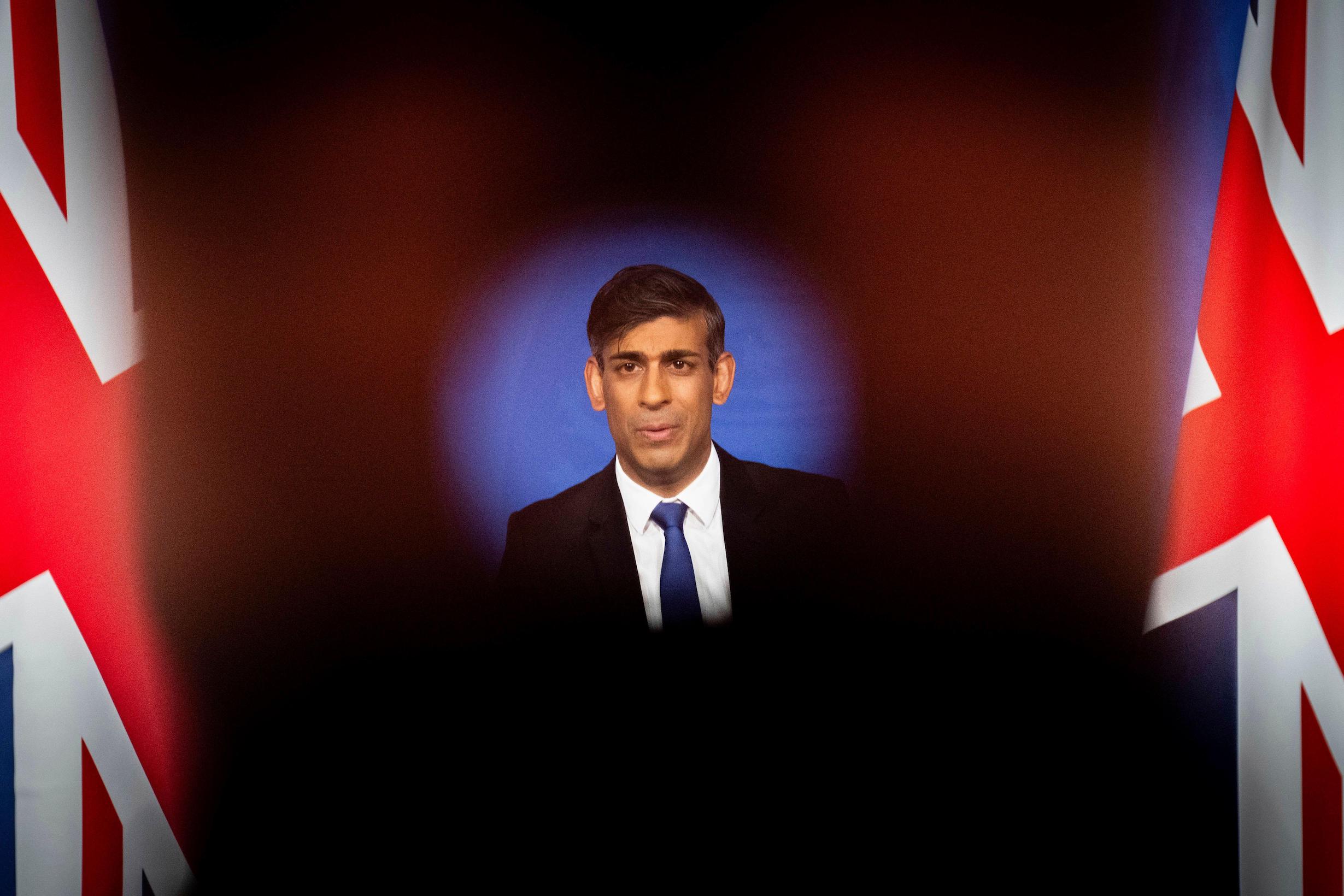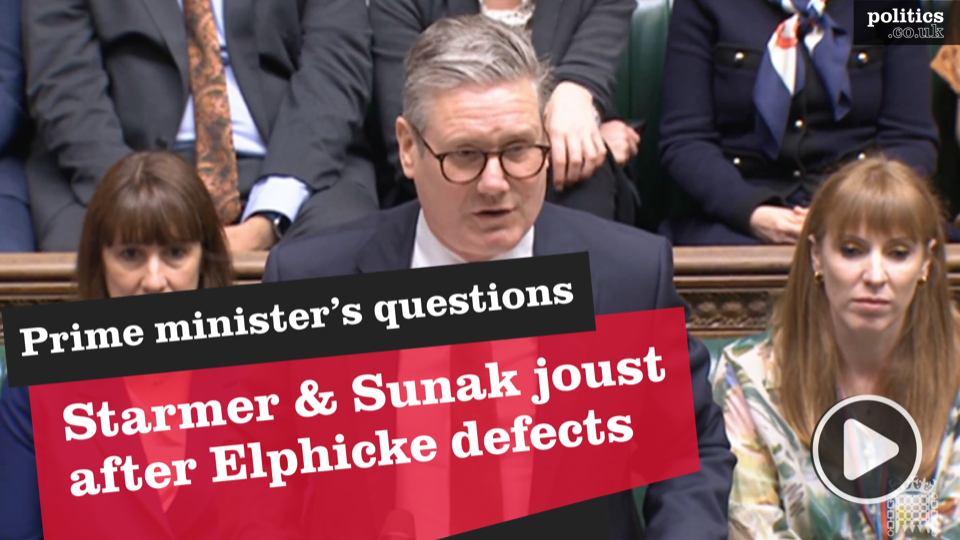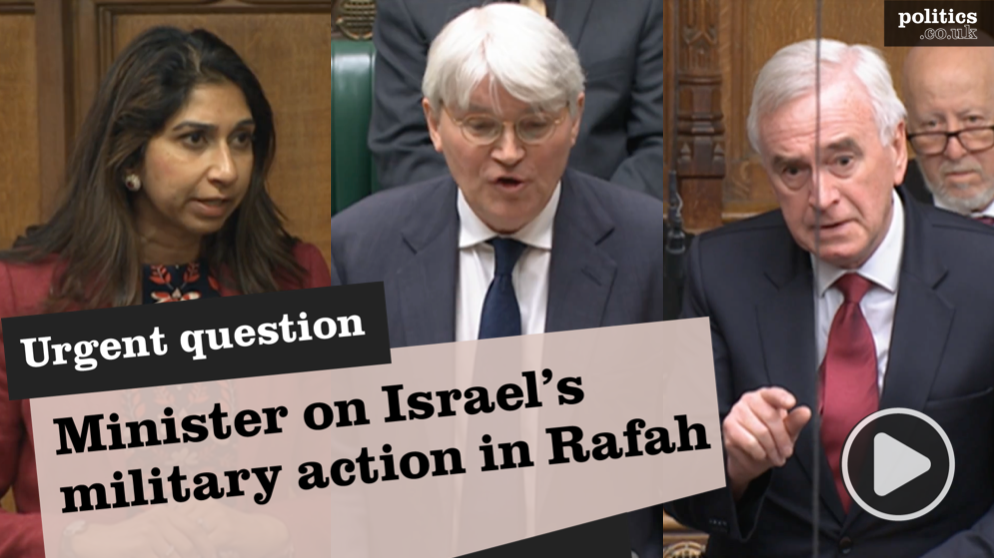It is the essential Sunakian dilemma: go too far and alienate the Conservative Party’s moderate elements — the vast swathe of MPs who fell behind the PM in consecutive leadership contests last year. Don’t go far enough, and anger the Conservatives’ ideological maximalists — MPs who are perennially suspicious of Sunak but who must be wooed to conjure the mere semblance of intra-party unity.
Squaring this circle has, in some senses, been the guiding imperative of the prime minister’s over-year-old administration. In October last year, Rishi Sunak became Conservative Party leader in period when factional antipathies were at a fever pitch; leadership contests will, by definition, corral a party against itself. Sunak had taken over in the wake of two.
Since then, of course, the prime minister has undertaken to enervate his intra-party shakers; both by refusing to lump in with one group entirely and stringently creating — and recreating — his politics in a way intended to alienate the least number of people, most of the time. Standing above the factional fracas might, in a best-case scenario, have conferred upon the PM his desired reputation for seriousness and delivery.
But Sunak’s premiership, to put it mildly, has not progressed according to best-case scenarios. In reality, his self-conscious liminality has left him ideologically unmoored in his party and bereft of the assuring support of a singular clique. He is trapped and without a tribe.


Still, Sunak’s historical association with the derided fifth columnists in the One Nation group, charged as they are with leading consecutive coups last year, still inspires suspicion among his party “right”. But nor can the PM rely on the support of the 106-strong one nation troop; their renewed restiveness is illustrative, (1), of their belief that the political tides have turned against them and, (2), of Sunak’s complicity in this.
Rishi Sunak could learn to fear the ‘One Nation Conservative’
Thus, what began as a strategic dilemma for No 10 SpAds to scrutinise is fast becoming existential — both for Rishi Sunak and the Conservative Party as a whole.
The immediate trigger of this is the still-unimplemented Rwanda plan or, more specifically, Sunak’s attempt to implement it. Nonetheless, the political difficulties that have flowed from the policy this week are difficult to contextualise. The PM’s burgeoning tumult must be considered within the brutal factional context outlined above — but we can equally treat the Rwanda plan on its own terms, given its political and legal aberrance probably tends inexorably to instability.
The Rwanda scheme is deliberately controversial as it tests, intrinsically, the limits of what is legally, politically and morally acceptable. The political furore that has flowed from it in the past year and a half has, in this sense, been expected and desired.
It also imposes on its lead patron some stringent political constraints; leading on the Rwanda plan requires tough talk, tough rules, bullishness and a willingness to test the limits of the law, international and domestic. It is straight out of the Boris Johnson playbook, with constitutional probity dismissed in favour of ideological, small boats-stopping intent.
In some senses, therefore, Sunak has been narrowed into a silo on the policy, both by his dire political inheritance and his party’s factional reality. It has meant, amid Sunak’s attempted political repositioning and his rhetoric of renewal, the government’s flagship “stop the boats” scheme has ever been a conspicuous anomaly.
The result, today, is Sunak’s Rwanda “plan B”, which is formed of two parts: a new treaty and new legislation. The first, thanks James Cleverly’s salesmanship skills, went down well. The second is prompting the most significant political crisis of the PM’s over-year-old premiership.
Thus, after immigration minister Robert Jenrick resigned on Wednesday over his belief the bill isn’t bullish enough, Sunak sought to salvage the worsening situation with a hastily arranged press conference the following day. It was a tell, don’t show address; the rhetorical sops came thick and thicker.
“My patience has worn thin”, “it is patently unfair”, “it’s ridiculous what’s going on”, he declared in turn.
“Parliament is sovereign. It should be able to make decisions that cannot be undone in the courts”, he clamoured; “Spurious human rights claims — you’d better believe we’ve blocked those”, he assured; “If the Strasbourg Court [ECHR] chooses to intervene against the express wishes of our sovereign parliament. I will do what is necessary to get flights off”, he boasted.
Sunak’s message and intended audience were plain: my bill is bullish, he informed the amassing battalion of rebels on his party right flank.
So did the presser succeed on these terms? Not nearly; the Conservative party right still defers to its “star chamber” of appointed lawyers — and, moreover, in an attempt to appease his party’s maximalist tendency, Sunak in fact succeeded in further alienating the one nation set.
PMQs verdict: Clearest signal yet the Rwanda plan won’t save Sunak
By Thursday morning, the party moderates seemed largely placated by the proposed legislation. But Sunak’s press conference saw him confirm, in essence, his willingness to circumvent the ECHR’s rulings and cross one of the One Nation group’s previously enumerated “red lines” in the process.
This episode illustrates how little room Sunak has for manoeuvre, given appealing to one side of his party-management dilemma almost necessarily invokes the anger of his critics.
The press conference was, therefore, symbolically significant; but for any further substantive developments, we will need to wait for pronouncements from the “star chambers” currently convened by Sunak’s right and moderate elements.
The “star chamber” gambit, one of the many unfortunate political innovations of the Brexit years, is a useful strategy. It presents the image of unity, both on strategy and principle, while conjuring the threat of a burgeoning rebellion for an already under-pressure prime minister.
It is useful, in the first instance, because this confected image of unity will be difficult to maintain over the coming days, weeks and months. Because while the right’s star chamber — underpinned with support from a constellation of Conservative right caucuses in the New Conservative, Common Sense and European Research groupings — looks likely to resolve that the bill does not meet its tests, what happens after this is far from certain.
Sure, we can expect an amendment — probably centred around Clause 4 of the legislation. (This part of the bill makes it explicit that even if Rwanda is now deemed a safe country, an individual can still argue they have individual circumstances that would make it unsafe). The Conservative right has raised concerns that the bill does not allow ministers to override the ECHR — but rather more existential for the Rwanda plan, their reading holds, is the ability of asylum seekers to challenge deportation under domestic law.
But a new-look bill such as this, with amendments appended on the ECHR and individual challenges, would simply not get through the House of Commons. One nation MPs would kill it upon arrival.
The right’s attempt to add further “notwithstanding” clauses to the bill is also a non-starter in other ways. Indeed, Sunak has stressed at pains that further disregarding the government’s international obligations would be unacceptable to the Rwanda government. It formed a core part of his pitch on Thursday, ominously reflecting Theresa May’s stance on her Brexit withdrawal agreement in 2018. Back my deal or risk losing Brexit altogether, she would often declare.
Back my bill or risk losing Rwanda entirely, Sunak now stresses.
So Sunak couldn’t accept such an amendment; Rwanda couldn’t accept it; the One Nation group couldn’t accept it. Simply put, it is not clear what the right would do next in this likely eventuality.
Of course, one possible pathway pertains to the position of Rishi Sunak himself.
And making the case for ditching the prime minister this week, albeit in coded terms, has been Lord Frost, the former chief Brexit negotiator under Boris Johnson. In an article for the Telegraph on Friday, he called on Conservatives not to “resign themselves to the coming electoral car crash”, adding: “If there is anything to be done to get us on a better path and increase our chances of winning, then I believe it must be done”.
A regicidal spasm from Sunak’s critics cannot be dismissed outright as a possibility. Indeed, if it becomes clear that the PM’s “plan B” cannot get through parliament or, worse, that it fails on his own terms, enstooling a sixth Conservative prime minister since 2010 will certainly be considered in some sections of the party.
But the very most Sunak’s critics could do is trigger a voter of no confidence in the PM — they would not win it. Reaching the 53 MP threshold of letters calling for such a move would be the easy part — because it would soon become clear that one nation MPs would fall behind the prime minister, for a third time in just over a year.
Party moderates would not want to invite upon themselves a worse premier, given former home secretary Suella Braverman’s name is so frequently touted as a potential successor.
Suella Braverman wants to be a martyr — but what’s her cause and who will follow?
But that is not to say that one nation MPs will support Sunak’s Rwanda bill. Because they have mirrored, in an act of serious apostasy, the tactics of their intra-party antagonists and appointed their own legal “star chamber” helmed by Edward Garnier KC, the Conservative peer and former solicitor general.
Garnier, as it happens, has already dismissed Sunak’s new Rwanda legislation as tantamount to declaring “all dogs are cats” — making it perfectly plain that he will not support the bill if it makes it to the House of Lords. And while it is Garnier’s legal advice, not his political advice, that one nation MPs seek — the statement bodes ill for Sunak indeed.
So, rather like Theresa May’s struggle over Brexit, Sunak is trapped, entirely unmoored within his party — with little recourse to stem his flowing tumult. Simply put, appeasing one group means antagonising the other; he is playing a zero-sum factional game.
In this way, it seems likely — akin to May’s Brexit dog days — that this present period of political hyperactivity will soon transpose into an equally all-consuming spell of political stasis. Neither Sunak nor his critics have politically attractive paths forward.
The best case scenario for Sunak is that he can skim enough votes from both moderate and maximalist groupings to cohere a narrow commons majority. The bill, then, would be sent to the Lords where it will be neutered and amended beyond recognition by peers like Lord Garnier.
What is significant here is that the Lords is no longer merely a revising or delaying chamber. Peers can block legislation for up to a year under the terms of the Parliament Act 1949. And, given we are in the final session of this parliament, it means a majority in the upper chamber has an effective veto on government legislation.
Rwanda, therefore, looks set to remain unimplemented — with neither Sunak nor his Conservative critics having any obvious recourse. What happens in the period of political stasis that follows will no less than decide the fate of Rishi Sunak, if it hasn’t been sealed already.
Josh Self is Editor of Politics.co.uk, follow him on Twitter here.
Politics.co.uk is the UK’s leading digital-only political website, providing comprehensive coverage of UK politics. Subscribe to our daily newsletter here.











